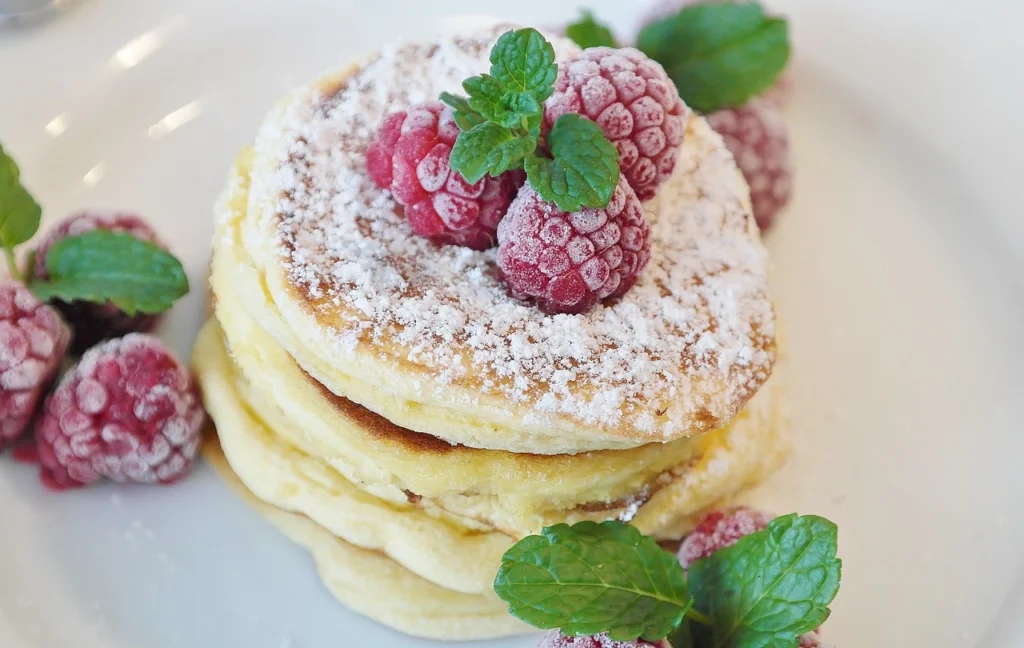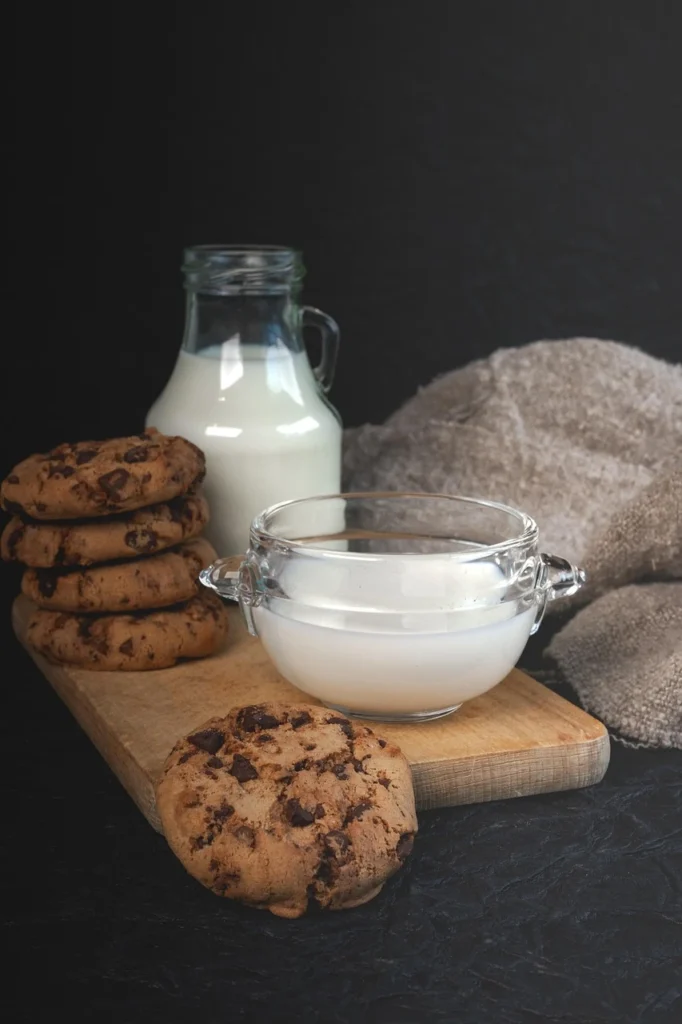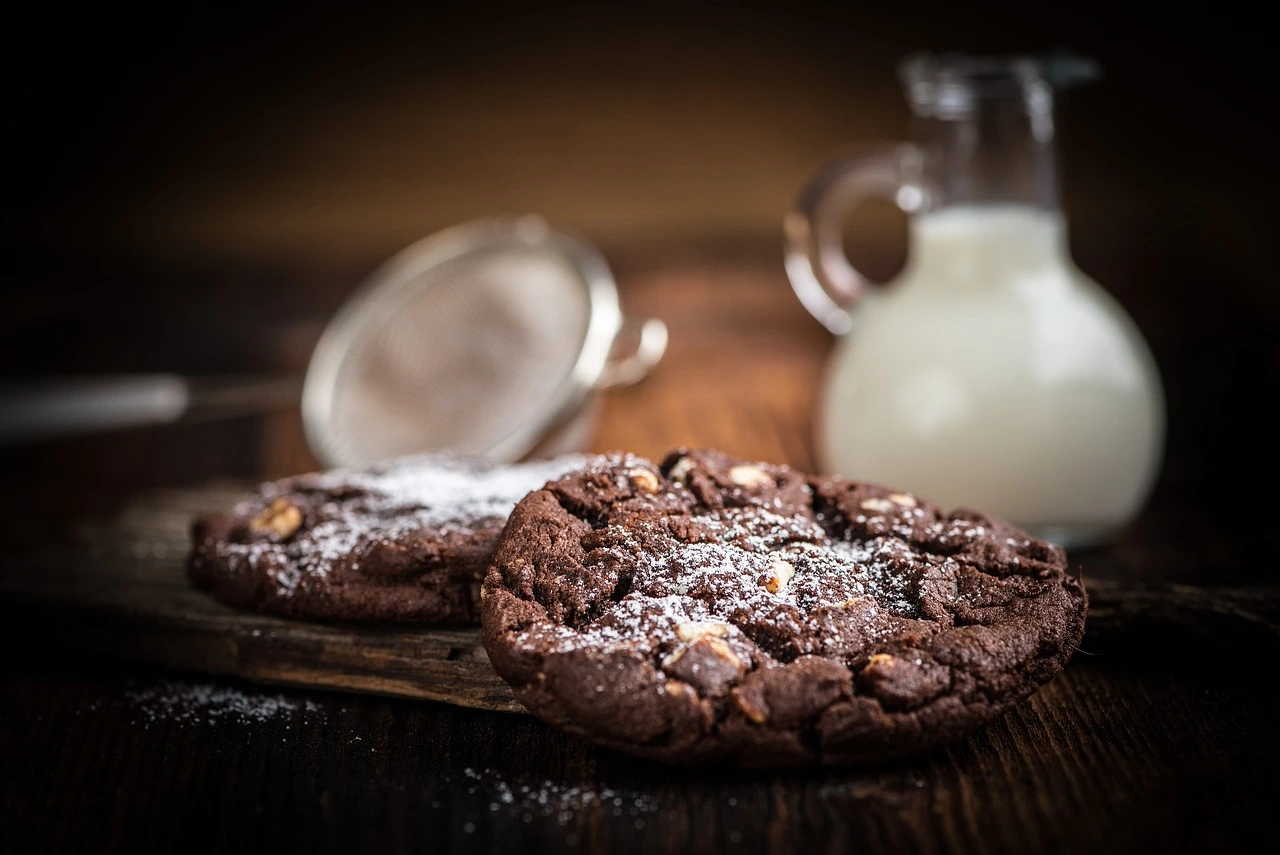Baking without eggs or milk is no longer just a dietary restriction—it’s a conscious lifestyle choice embraced by vegans, individuals with allergies, and health-conscious bakers alike. As food sensitivities and plant-based diets become more common, eggless and dairy-free recipes have grown in popularity for their inclusivity and flexibility. Fortunately, you don’t have to sacrifice flavor or texture when removing traditional ingredients from your baked goods.
Oatmeal cookies, in particular, are a fantastic entry point into egg- and dairy-free baking. Naturally hearty and chewy thanks to rolled oats, these cookies adapt well to ingredient swaps. Whether you’re avoiding animal products, managing lactose intolerance, or simply out of eggs, there are simple, effective alternatives like mashed bananas, flaxseed “eggs,” and plant-based butters that deliver the same delicious results.
This article dives deep into everything you need to know about making perfect oatmeal cookies without eggs or milk. From understanding key substitutions to mastering a go-to recipe, you’ll learn how to create cookies that are moist, flavorful, and allergy-friendly—without compromising on taste or quality.

Key Ingredients for Oatmeal Cookies Without Eggs or Milk
Creating oatmeal cookies without eggs or milk is all about using the right plant-based substitutes that maintain structure, moisture, and flavor. The star ingredient, rolled oats, gives these cookies their signature texture and heartiness. For binding, eggs can be replaced with mashed bananas, applesauce, flaxseed meal mixed with water (flax egg), or chia seeds—each offering a unique texture and nutritional benefit.
When it comes to replacing dairy, plant-based butter or neutral oils like coconut or canola work well to provide richness. If the recipe calls for milk, unsweetened almond milk, oat milk, or soy milk are ideal non-dairy alternatives that won’t overpower the cookie’s flavor. Sweeteners such as maple syrup, agave nectar, or brown sugar help balance flavor and retain moisture.
Flavor enhancers like vanilla extract, cinnamon, and a pinch of salt are key to making the cookies truly crave-worthy. Optional add-ins include raisins, dairy-free chocolate chips, or chopped nuts.
Table of Contents
Baking Science: What Replaces Eggs and Milk in Cookies?
Understanding how eggs and milk function in traditional cookie recipes helps explain why the right substitutes matter. Eggs act primarily as binders and leaveners—they hold ingredients together and contribute to structure and softness. Milk adds moisture, richness, and can help dissolve sugar, which affects the cookie’s texture and spread.
In eggless and dairy-free baking, binders like flaxseed meal mixed with water (often called a “flax egg”) mimic the viscosity and binding properties of real eggs. Chia seeds, when soaked, do the same. Mashed bananas, applesauce, or even pumpkin puree not only bind the dough but also infuse it with natural sweetness and moisture—though they may slightly alter the flavor.
Replacing milk is often simpler. Plant-based milks such as almond, oat, or soy add moisture without affecting the texture or flavor much. Using vegan butter or oils like coconut oil replicates the richness of dairy butter, helping achieve a tender, chewy crumb.
Each substitute affects the final cookie differently, so understanding these roles lets you adjust texture and flavor to your liking. Whether you prefer chewy, cakey, or slightly crispy cookies, you can get there without a drop of milk or a single egg.
Best Variations of Eggless & Milk-Free Oatmeal Cookies
One of the greatest advantages of oatmeal cookies—especially those made without eggs or milk—is how endlessly customizable they are. With a flexible base of oats and plant-based ingredients, you can craft a wide range of cookie styles to suit your taste or dietary needs.
Oatmeal Raisin:
A classic favorite. Use plump raisins for natural sweetness, cinnamon for warmth, and a flax egg for structure. Add a touch of nutmeg for depth.
Peanut Butter Oatmeal:
Creamy peanut butter (or sunflower seed butter for a nut-free version) adds richness and protein. This version is great for a chewy, protein-packed treat.
Chocolate Chip (Dairy-Free):
Swap in dairy-free chocolate chips to make a decadent yet allergy-friendly cookie. Combine with vanilla extract and coconut oil for that soft, melt-in-your-mouth effect.
Banana Oatmeal:
Mashed bananas serve as both a binder and sweetener. They pair well with chopped walnuts or dark chocolate for a naturally sweet cookie with extra texture.
Coconut Oatmeal:
Shredded coconut adds chewiness and tropical flavor. Combine with almond or oat milk and use coconut oil for enhanced flavor harmony.
Gluten-Free Oatmeal Cookies:
Use certified gluten-free oats and almond flour or oat flour. Pair with egg replacers like chia eggs to maintain structure without compromising texture.
These variations not only satisfy a range of flavor preferences but also demonstrate how eggless and dairy-free cookies can be every bit as delicious and satisfying as their traditional counterparts.
Step-by-Step Recipe: Classic Oatmeal Cookies Without Eggs or Milk
This simple, go-to recipe makes soft, chewy oatmeal cookies without a trace of eggs or dairy—perfect for vegans, those with allergies, or anyone out of fridge staples. It yields about 12–14 cookies and comes together in under 30 minutes.
Ingredients:
- 1 cup rolled oats
- ¾ cup all-purpose flour (or oat flour for gluten-free)
- ½ tsp baking soda
- ½ tsp cinnamon
- ¼ tsp salt
- ½ cup brown sugar
- ¼ cup coconut oil or vegan butter (melted)
- 1 tbsp ground flaxseed + 3 tbsp water (flax egg)
- 2 tbsp almond or oat milk
- 1 tsp vanilla extract
- Optional: ⅓ cup raisins or dairy-free chocolate chips
Instructions:
- Preheat oven to 350°F (175°C). Line a baking sheet with parchment paper.
- In a small bowl, mix flaxseed with water. Let sit for 5 minutes to thicken.
- In a large bowl, whisk together oats, flour, baking soda, cinnamon, and salt.
- In another bowl, mix brown sugar, melted coconut oil, flax egg, plant milk, and vanilla.
- Combine wet and dry ingredients. Fold in any add-ins.
- Scoop dough into 1.5-inch balls, flatten slightly.
- Bake for 10–12 minutes. Cool on a wire rack.
Nutrition and Health Benefits
Oatmeal cookies made without eggs or milk aren’t just inclusive—they’re also a healthier option when thoughtfully prepared. Oats are the star of the show, offering a rich source of dietary fiber, especially beta-glucan, which helps reduce cholesterol levels and support heart health. They also provide slow-releasing carbohydrates that help maintain steady energy levels.
By removing eggs and dairy, these cookies are naturally lower in cholesterol and saturated fat, making them heart-friendly and suitable for those watching their fat intake. When sweetened with natural alternatives like maple syrup or coconut sugar, you also avoid refined sugars, contributing to better blood sugar control.
Common Substitutes and Swaps
Using ingredients like flaxseeds or chia adds omega-3 fatty acids and plant-based protein, boosting the overall nutritional profile. These cookies can easily be (150 words)
Making oatmeal cookies without eggs or milk requires a few smart swaps that preserve texture and flavor. Fortunately, there are plenty of effective, affordable alternatives to traditional ingredients.
Egg Replacements:
The most popular substitutes are flax eggs (1 tablespoon ground flaxseed + 3 tablespoons water) or chia eggs (same ratio). Mashed bananas, applesauce, or even pumpkin puree also work well—especially in recipes where added moisture and a hint of natural sweetness are welcome.
Milk Replacements:
Almond milk, oat milk, soy milk, or coconut milk can replace dairy milk at a 1:1 ratio. Unsweetened versions are best to control sweetness.
Butter Alternatives:
Use melted coconut oil, avocado oil, or vegan butter to provide fat and richness. If you prefer an oil-free recipe, nut butters like peanut or almond butter can act as a binder and fat source combined.
These substitutions allow for endless customization while keeping your cookies dairy-free, egg-free, and delicious.

Baking Tips for Perfect Dairy- and Egg-Free Cookies
Baking without eggs and milk doesn’t mean compromising on quality—you just need to adjust your technique slightly. Here are a few key tips to ensure your cookies turn out perfectly every time:
1. Chill the dough:
Eggless dough can be softer due to fruit purées or plant-based milk. Chilling it for 20–30 minutes before baking helps firm it up, resulting in thicker, chewier cookies.
2. Flatten slightly before baking:
Eggless dough tends to spread less. Press each dough ball gently before placing in the oven to achieve the classic cookie shape.
3. Don’t overbake:
These cookies may look underdone when the edges just start to brown—but that’s the perfect time to take them out. They’ll firm up as they cool.
4. Use parchment paper:
This prevents sticking and ensures an even bake without the need for greasing.
Following these small but important tips can elevate your eggless, dairy-free oatmeal cookies from good to bakery-quality.
Storage and Shelf-Life
Proper storage ensures your eggless, dairy-free oatmeal cookies stay fresh and delicious for days. Once fully cooled, place the cookies in an airtight container at room temperature. They’ll maintain their soft, chewy texture for about 4 to 5 days. To extend their life, store them in the refrigerator for up to a week.
For longer storage, freeze the cookies in a single layer on a baking sheet, then transfer to a freezer-safe bag or container. They’ll keep for up to 2 months. To enjoy, simply thaw at room temperature or warm them briefly in the oven for that fresh-baked taste.
Kid-Friendly and School-Safe Options
Eggless and dairy-free oatmeal cookies are an ideal treat for kids—especially in school settings where food allergies are a concern. By using plant-based milk and avoiding eggs, you eliminate two of the most common allergens. For a nut-free version, skip peanut butter and opt for sunflower seed butter or use extra coconut oil.
Add-ins like raisins, dairy-free chocolate chips, or cinnamon make the cookies flavorful and fun without relying on allergens. They’re soft, easy to chew, and perfect for lunchboxes or after-school snacks. Plus, with no raw eggs in the dough, kids can safely help—and taste—while baking.
Frequently Asked Questions (FAQs)
Q1: Can oatmeal cookies be made without eggs?
Yes, oatmeal cookies can absolutely be made without eggs. In fact, there are many plant-based substitutes like flax eggs, chia eggs, mashed bananas, or applesauce that act as binders to help hold the dough together. These alternatives also add moisture and, in some cases, a subtle natural sweetness.
Q2: What happens if you don’t add eggs to cookies?
Without eggs, cookies may lack structure, spread less, or turn out crumblier—unless proper substitutes are used. Egg replacements like flaxseed or mashed banana provide the necessary binding and moisture to prevent dryness. With the right ratios, you can achieve chewy, soft cookies that are just as good as those made with eggs.
Q3: What is a substitute for eggs in oatmeal raisin cookies?
For oatmeal raisin cookies, the best egg substitutes are flax eggs or chia eggs. Both mimic the texture and binding ability of eggs without altering the flavor. Mashed bananas or applesauce can also be used, especially if you’re looking for added natural sweetness and a slightly softer texture.
Q4: What can I put in cookies if I don’t have eggs?
If you’re out of eggs, try 1 tablespoon of ground flaxseed mixed with 3 tablespoons of water per egg. You can also use mashed banana, unsweetened applesauce, plain yogurt (plant-based for dairy-free), or even silken tofu. These options will help bind your cookie dough while keeping it moist and flavorful.
Related Recipes and What to Serve With Them
Oatmeal cookies without eggs or milk pair wonderfully with a variety of other plant-based treats. Serve them alongside almond milk, oat milk lattes, or dairy-free hot chocolate for a cozy snack or dessert. These cookies also complement a vegan dessert board that includes fruit, dark chocolate, and nut-free brownies.
Looking to expand your eggless baking? Try recipes for vegan banana muffins, dairy-free chocolate chip cookies, or no-bake energy bites made with oats and dates. These wholesome options are just as easy to prepare and perfect for anyone following an allergy-conscious or plant-based lifestyle.
Conclusion
Oatmeal cookies without eggs or milk prove that you don’t need traditional ingredients to create a delicious, satisfying treat. With the right substitutions—like flax eggs, plant-based milk, and healthy fats—you can enjoy cookies that are chewy, flavorful, and allergy-friendly. Whether you’re baking for dietary reasons, personal preference, or simple curiosity, this recipe offers flexibility without compromise. From classic oatmeal raisin to banana-infused variations, the possibilities are endless. These cookies are perfect for sharing, packing in lunchboxes, or enjoying with a cozy cup of tea. Once you try them, you may never go back to the traditional version.

